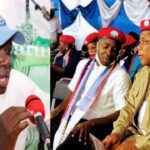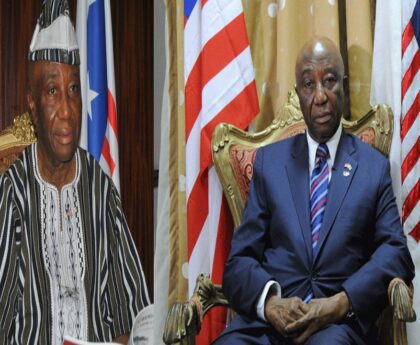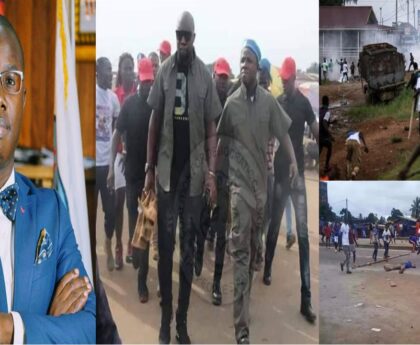In a development that has raised eyebrows both domestically and internationally, Liberia is facing accusations of allowing individuals sanctioned by the United States government to participate in and win Senate seats. The controversy centers around President George Weah’s government allegedly granting the ruling Coalition for Democratic Change (CDC) symbol to officials previously sanctioned by the US.
The sanctioned individuals, whose names were on the US government’s list for various reasons, ranging from corruption to human rights abuses, were reportedly given the CDC’s backing to contest in Liberia’s Senate elections. Surprisingly, some of them not only participated but also emerged victorious in their respective constituencies, prompting concerns about the implications of such a move.
Critics argue that President Weah’s decision to endorse and support individuals under US sanctions raises questions about the government’s commitment to international standards of accountability and the fight against corruption. It also puts Liberia at odds with the stance taken by the US government, which had imposed sanctions on these officials based on their alleged involvement in activities contrary to American interests.
The controversy has strained Liberia’s diplomatic relations with the United States, with Washington expressing deep concern over the disregard for the imposed sanctions. The US government has emphasized the importance of holding individuals accountable for their actions and upholding the principles of good governance.
President Weah’s government, however, maintains that the individuals in question have the right to participate in the democratic process and that the sanctions imposed by the US do not invalidate their eligibility for political office in Liberia. The government argues that the voters have spoken, and the election results should be respected.
The international community is closely monitoring the situation, with human rights organizations and advocacy groups calling for an impartial investigation into the allegations. The outcome of such an inquiry would shed light on whether the involvement of US-sanctioned officials in Liberian politics was a deliberate move or a result of oversight within the electoral process.
The controversy has sparked a broader conversation within Liberia about the balance between national sovereignty and international accountability. It remains to be seen how this issue will impact Liberia’s standing on the global stage and whether there will be diplomatic repercussions as a result of the alleged disregard for US sanctions.
As Liberia navigates through these challenging circumstances, the spotlight remains on President George Weah’s government to address the concerns raised by the international community and ensure that the democratic processes align with both national and international standards of accountability.




